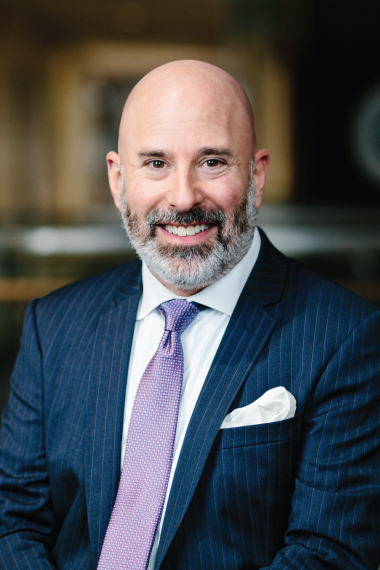A new paper by organizational behaviour expert Dr. Jamie Gruman presents a new model that integrates positive psychology and human resource management. Published in the Human Resource Management Review, the paper explores positive psychology, the study of focusing on the “good” in life, rather than concentrating on the “bad,” which has historically been the focus of psychology and its application in management. One key aspect of this new model is that it places employee well-being on par with performance as an important outcome of management processes.
Another important idea that Gruman presents in the paper is that leaders should abandon the term "human resources" and replace it with "human resourcefulness". Gruman states that human resources is an “insulting term which implies that employees are resources to be utilized.”
Explore more about this new research in the below Q&A feature with Dr. Jamie Gruman:
Can you explain this new model that your research introduces?
The PHRAME model is an acronym which stands for Positive Human Resourcefulness and Management. It suggests that "positive" HR practices and systems promote well-being at both the individual and team levels, which in turn generate desirable business outcomes by stimulating emotional, psychological, motivational, and social mechanisms. The model integrates what we know about "positive" organizational phenomena to suggest how HR practices can be structured to promote not only high performance, but also employee well-being. The coronavirus pandemic has taught us that employees want to be supported as people, not just as employees, and that organizations that position employee wellness as a priority have a strategic and moral advantage.
How can managers use the PHRAME model within their teams?
The PRAME model gives managers a new "mindset" and suggests that management practices should focus on employee well-being in addition to performance. Not only can "positive" practices drive performance, but recent events have highlighted that what's important in organizations is not just performance, but the well-being of employees. The PHRAME model places employee well-being on par with performance as an important organizational outcome. This new mindset views employees as whole people contributing to a larger purpose, as opposed to viewing them as resources leveraged to drive performance. Managers can use the model to understand how supporting employees drives performance, happiness, and a life well-lived.
What are the benefits of HR managers implementing the PHRAME model?
The benefits may include high performance. Happy employees are good employees. But the benefits are broader than that. They include building a just society in which people are valued as subjects, as opposed to leveraged as objects. The PHRAME model puts people in proper perspective. It rebalances a perspective that regards employees as assets to be leveraged to support the economy, and replaces it with a picture of people working together to build an ethical world. It also extends well beyond HR. The new mindset offered by the PHRAME model applies to all endeavors in which people are involved such as organizational change and strategic planning.
What is the future of PHRAME?
The future of the PHRAME model is a world in which we learn the lessons of the past, move through our adolescence as a species, and focus on building a world in which the economy works for people, instead of the other way around. In this new world, people are respected as unique individuals supporting a grander purpose, not treated like expendable, replaceable parts in a big machine. Leaders have to wear two hats: one focused externally on building strategic advantage, the other focused internally on building community. The PHRAME model rebalances the historic weight placed on the external issues to focus on internal issues which have been neglected and undervalued. The future is actively building a business world that celebrates human potential and elevates us to our highest heights.

Subscribe to the Lang School's Business Impact Newsletter
Ideas, insights, research and thought leadership from the Lang School delivered right to your inbox.
Subscribe


